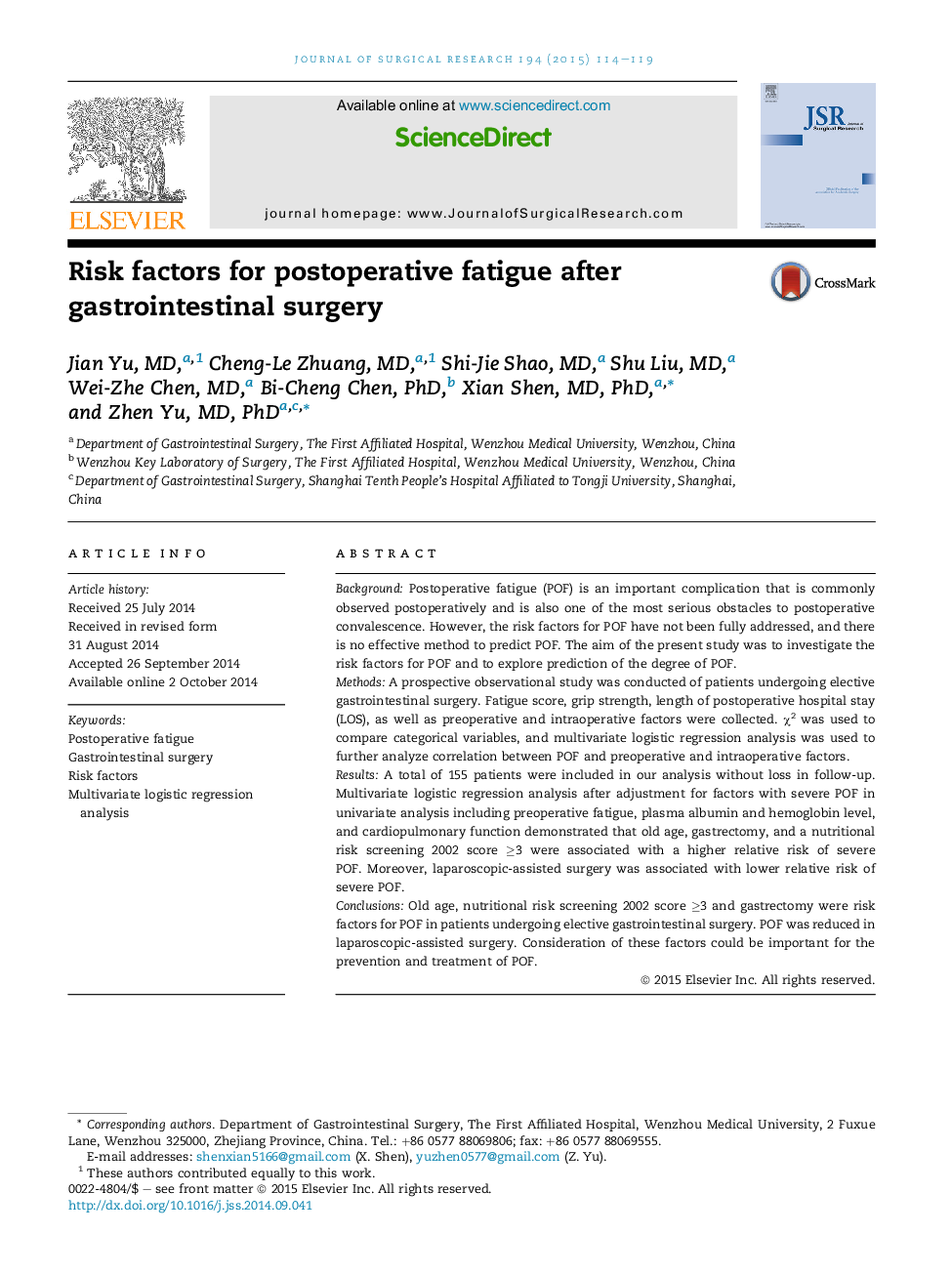| Article ID | Journal | Published Year | Pages | File Type |
|---|---|---|---|---|
| 4299834 | Journal of Surgical Research | 2015 | 6 Pages |
BackgroundPostoperative fatigue (POF) is an important complication that is commonly observed postoperatively and is also one of the most serious obstacles to postoperative convalescence. However, the risk factors for POF have not been fully addressed, and there is no effective method to predict POF. The aim of the present study was to investigate the risk factors for POF and to explore prediction of the degree of POF.MethodsA prospective observational study was conducted of patients undergoing elective gastrointestinal surgery. Fatigue score, grip strength, length of postoperative hospital stay (LOS), as well as preoperative and intraoperative factors were collected. χ2 was used to compare categorical variables, and multivariate logistic regression analysis was used to further analyze correlation between POF and preoperative and intraoperative factors.ResultsA total of 155 patients were included in our analysis without loss in follow-up. Multivariate logistic regression analysis after adjustment for factors with severe POF in univariate analysis including preoperative fatigue, plasma albumin and hemoglobin level, and cardiopulmonary function demonstrated that old age, gastrectomy, and a nutritional risk screening 2002 score ≥3 were associated with a higher relative risk of severe POF. Moreover, laparoscopic-assisted surgery was associated with lower relative risk of severe POF.ConclusionsOld age, nutritional risk screening 2002 score ≥3 and gastrectomy were risk factors for POF in patients undergoing elective gastrointestinal surgery. POF was reduced in laparoscopic-assisted surgery. Consideration of these factors could be important for the prevention and treatment of POF.
